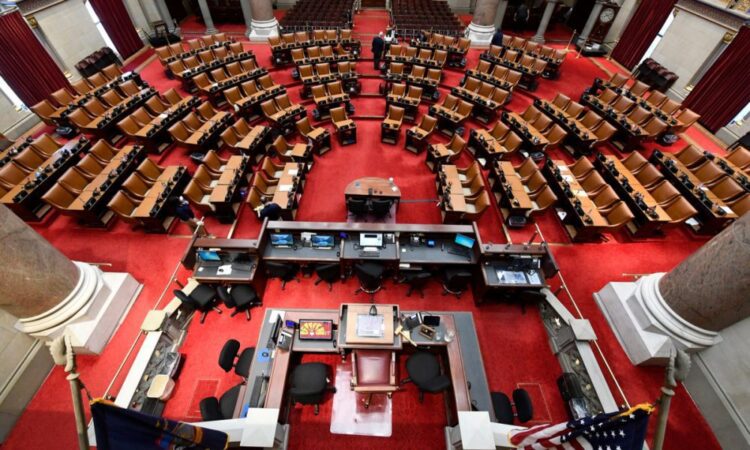
New York is considering a bill that would let consumers pay state agencies with cryptocurrency.
The legislation, now in committee before the state assembly, proposes that crypto be used as “a means of payment of fines, civil penalties, rent, rates, taxes, fees, charges” owed to state agencies, according to the bill, introduced last week by Assemblyman Clyde Vanel.
Vanel, a Democrat whose 33rd District includes several Queens neighborhoods, created what he called the country’s first crypto task force in 2019.
The legislation is happening as payment industry leaders polled by PYMNTS say they see the crypto industry having a much more promising 2023 compared to 2022, at least when it comes to their field.
“Regulated but supportive financial infrastructure is necessary for the success of crypto as the sector as a whole moves beyond just entering the mainstream and begins to seek value-realizing integrations with more traditional financial and institutional players,” PYMNTS wrote last week.
And Dr. Yan Zhang, CEO of Airswift told PYMNTS recently that the success of the crypto industry will come from the “seamless” integration of regulated FinTech architecture with decentralized systems.
“It is critical to develop a decentralized payment protocol and integrate it with regulated payment service providers and money service operators,” Zhang said, adding that, in the end, companies need to offer a crypto service consumers can easily use.
As more mainstream financial institutions seek to add crypto to their retail and institutional client services, observers hope the promise of crypto and blockchain to provide cheaper, faster and safer domestic and cross-border payment solutions may finally be realized, PYMNTS wrote.
On the federal level, cryptocurrency industry regulation in the wake of the FTX collapse has emerged as a key priority for the new Congress, as noted here recently.
Rep. Patrick McHenry, R-N.C., chair of the House Financial Services Committee, has put together a new crypto-focused subcommittee, dubbed the Subcommittee on Digital Assets, Financial Technology and Inclusion.
Rep. French Hill, R-Ark., also the vice chair of the House Financial Services Committee, will oversee this subcommittee.
“At a time of major technological advancement and change in the financial sector, it is our job to work across the aisle and promote responsible innovation while encouraging FinTech innovation to flourish safely and effectively in the United States,” Hill said in a statement that announced his appointment to the subcommittee.
Last week Sen. Elizabeth Warren claimed in an interview with the American Economic Liberties Projects (AELP) that the previous administration “essentially gave the green light” to a cryptocurrency market “full of junk tokens, unregistered securities, rug pulls, Ponzi schemes, pump and dumps, money launderings and sanctions evasions.”
PYMNTS Data: Why Consumers Are Trying Digital Wallets
A PYMNTS study, “New Payments Options: Why Consumers Are Trying Digital Wallets” finds that 52% of US consumers tried out a new payment method in 2022, with many choosing to give digital wallets a try for the first time.







